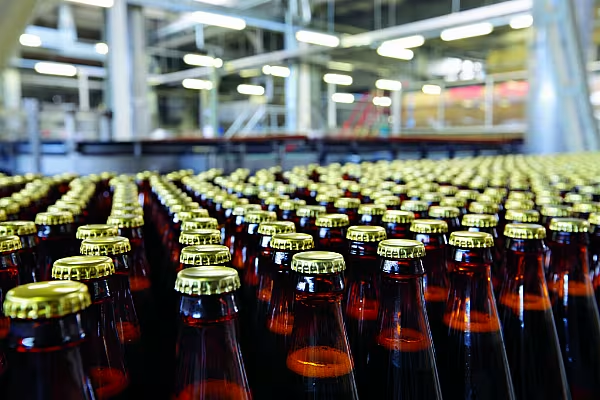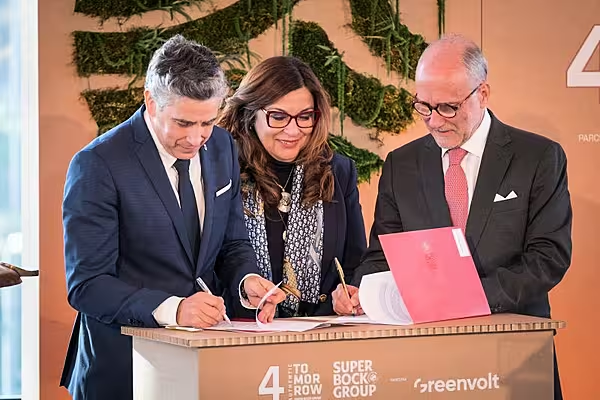Six months after bond investors fought to get a piece of the largest corporate-bond offering in history, there are simmering concerns that the yields they were chasing could be yanked away.
Debt sold by Anheuser-Busch InBev NV to fund its takeover of SABMiller Plc tumbled after the acquisition was thrown into disarray, sparking concerns the company could redeem more than $35 billion of $60 billion in securities sold to help fund the deal. Bond documents show the debt would be bought back at a discount to where the securities have been trading.
Doubts over the takeover couldn’t come at a worse time for bond investors starved of opportunities to earn interest. When AB InBev sold the U.S. portion of its bonds, the company received a record $110 billion in investor orders. The company’s debt had been rising steadily since January, with one portion trading as high as 109.8 cents on the dollar this month. Now the bonds are falling closer to 101 cents, because that’s the price at which bondholders would have to sell their debt back to AB InBev if the deal falls apart.
“People get excited -- they get attracted to the yield and they assume an announced deal is a done deal,” said Joe Mayo, head of credit research at Conning, a global insurance investment manager with about $104 billion in assets under management. He said he doesn’t buy bonds that back pending acquisitions above their redemption price. “That’s taking an unnecessary risk, ultimately.”
Mandatory Redemption
All of the bonds except for $17 billion of 20- and 30-year notes carry a special mandatory redemption of 101 cents if the takeover is canceled, Bloomberg data show.
The bonds were sold as part of a $60 billion debt deal -- the largest corporate offering in history. The securities were sold in two parts, a $46 billion deal issued in January and a 12.75 billion euro ($14 billion) sale in March, according to data compiled by Bloomberg.
AB InBev’s $11 billion of 3.65 percent 10-year bonds fell 0.22 cent to 105.97 cents at 8:00 a.m. on Thursday in New York. On Wednesday, they posted their biggest one-day decline since they were issued in January, according to Trace, the bond-price reporting system of the Financial Industry Regulatory Authority. The company’s $6 billion of 3.3 percent seven-year notes fell 0.13 cent to 104.67 cents on Thursday.
‘Worse Off’
“If the deal winds up not going through it obviously changes things for bondholders,” said Jack Flaherty, a New York-based money manager at GAM Holdings AG. “Both companies are worse off if it doesn’t go through.”
The euro-denominated portion of the deal was the biggest-ever sale of corporate bonds in the single currency. Holders of those notes will be acutely affected by early redemption as they face the prospect of few investment alternatives for the cash they get back.
Draining Market
Since the European Central Bank began draining the market of highly rated corporate debt under an extension of its stimulus measures in June, yields have slumped to records and investors have had to seek out riskier assets in their hunt for returns.
“There aren’t many great opportunities in European investment grade at the moment,” said Gordon Shannon, a London-based money manager at TwentyFour Asset Management, which oversees 6.4 billion pounds ($8.4 billion) of assets. “I’d imagine if people want yield, they’d be buying financials or high-yield or looking at other currencies.”
The decision to suspend the integration from London-based SABMiller comes after a rebellion from its shareholders who say they haven’t been compensated enough for the pound’s recent plunge. Advisers continue to work on the transaction, and SABMiller’s board hasn’t decided to walk away from the deal as it reviews an improved offer from AB InBev, people familiar with the matter said.
AB InBev agreed in October to buy SABMiller for more than $100 billion. Combined they would produce almost one in three beers worldwide. The takeover would give AB InBev control of such brands such as Peroni and Coors.
News by Bloomberg, edited by ESM. To subscribe to ESM: The European Supermarket Magazine, click here.














